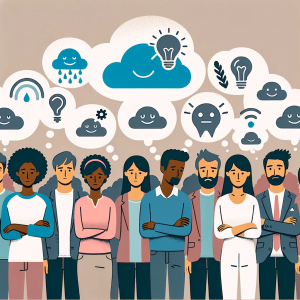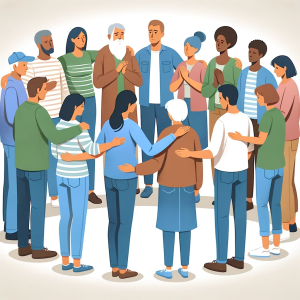Transforming Lives: The Role of Supportive Communities in Mental Health Recovery

Mental health, a critical aspect of overall well-being, often faces challenges shrouded in misunderstanding and stigma. The journey towards recovery is not a linear path but a complex process that requires more than personal resilience. It necessitates the involvement of supportive communities, playing a pivotal role in facilitating mental health recovery. Mental health issues, such as anxiety, depression, and more severe conditions like schizophrenia, impact millions globally. Recognizing and understanding these challenges is the first step towards effectively addressing them. The path to recovery is unique and varied for each individual. It involves navigating a labyrinth of emotions, setbacks, and breakthroughs, making the support from communities even more vital.
The Role of Supportive Communities
A supportive community is more than just a group of people offering help; it is a network that provides empathy, understanding, and practical assistance. These communities are pivotal in offering the necessary support for mental health recovery. They offer a safe space where individuals feel heard and understood, a sanctuary where mental health struggles are acknowledged and supported. These communities come in various forms, from close-knit family groups to broader networks like peer support groups, online forums, and professional networks. Each type caters to different support needs and plays a unique role in the recovery process.
The Emotional and Social Backbone
The emotional and social support offered by these communities is invaluable. They help alleviate feelings of isolation, providing a sense of belonging and understanding. This kind of support fosters a positive environment conducive to healing and growth.
Practical Assistance
Beyond emotional sustenance, supportive communities often offer practical help, such as access to resources, sharing of information, and experiences. This kind of assistance is crucial in guiding individuals through their recovery journey.
Overcoming Barriers
Accessing these communities can be challenging due to societal stigma and personal inhibitions. Recognizing and overcoming these barriers is essential for individuals to benefit from the support they need. Stigma, particularly, remains a significant barrier, preventing many from seeking and receiving necessary help.
Success Stories and Cultural Impact
The transformative power of supportive communities is evident in numerous success stories. Understanding the key factors contributing to successful recoveries within these communities is vital for replicating such environments. Additionally, cultural and societal contexts significantly influence the support available, shaping the effectiveness and nature of the support provided. Being sensitive to these differences is crucial in creating inclusive and effective communities.
A Synergistic Approach
Combining professional guidance with peer support forms a comprehensive support system, addressing various aspects of mental health recovery. Healthcare professionals bring expertise, while peer support offers empathy and understanding based on shared experiences.
The Digital Age and Mental Health
The rise of digital technology has led to the growth of online support networks, providing new avenues for connection and support. These digital communities offer accessible, diverse, and often anonymous spaces for individuals seeking support, though they come with their own set of challenges.
Involving Family and Friends
Family and friends play a crucial role in mental health recovery, providing a foundational layer of support. Their involvement can enhance the recovery process, offering a holistic approach to mental health care.
Community Programs and Initiatives
Various community programs and initiatives significantly support mental health recovery. Participation in these programs offers valuable resources and connections, enhancing the recovery journey and contributing to the well-being of others.
Conclusion
In conclusion, supportive communities are an integral part of mental health recovery. They provide the emotional, social, and practical support that can significantly impact an individual’s journey towards wellness. Embracing the power of community can transform the path to better mental health, creating spaces of understanding, support, and hope.
FAQs
- How do supportive communities aid in mental health recovery? Supportive communities provide emotional, social, and practical support, offering a network of care and resources crucial for recovery.
- What challenges do individuals face in accessing supportive communities? Challenges include societal stigma and personal inhibitions, which can hinder individuals from accessing these vital support networks.
- What role do family and friends play in supporting mental health recovery? Family and friends provide a fundamental layer of support, offering love, understanding, and practical assistance in the recovery journey.






